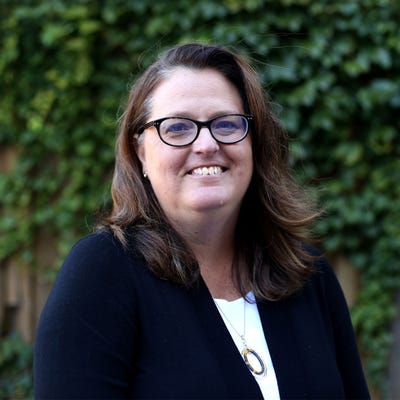Subscriptions to Sustainability Leadership: A Q&A With Ahold Delhaize CEO Frans Muller
Dutch grocery giant's top leader dives deeper into grocery's tech transformation, e-commerce's evolution and an issue of special personal interest: sustainability. “I think more and more shareholders care about sustainability because they see that when you are a company that people love to work for … they are more loyal to your company," says the leader of the Netherlands-based, multibillion-dollar grocer.
May 16, 2022


Frans Muller
Ahold Delhaize CEO Frans Muller had nothing but positive sentiment when the Dutch retailer reported its first-quarter 2022 earnings on May 11. "I am pleased to report a strong start to the year for Ahold Delhaize,” Muller said in a release regarding the company's earnings.
Ahold said first-quarter group U.S. net sales were up nearly $12.9 billion, or 5.8%, compared with first-quarter 2021, which contained a 53rd week, as at-home trends continue to be sticking. Muller added: “In times like these, our strong global portfolio of local brands provides distinct competitive and societal advantages. This allows us to successfully navigate short-term market volatility and, at the same time, provide financial stability and operational bandwidth to focus on our long-term growth agenda.”
Muller, who is heralded as a CEO who is mindful of ethical and sustainability responsibilities—all while overseeing a multibillion-dollar international company spoke with WGB Executive Editor Christine LaFave Grace and Editor Diane Adam to discuss grocery digitalization, delivery, and a matter close to his heart—sustainability. What follows are excerpts from the interview conducted with WGB on May 11.
Christine LaFave Grace: It’s a slightly different environment in the US versus Europe why is it so important to Ahold Delhaize to take a leadership position on sustainability and to get out in front of other players in the grocery industry especially in the US versus just running alongside them or just keeping up with regulations?
Frans Muller: That is a strategically important question, but also a question where you hit with me with both the heart and mind. I believe that in the grocery food that is healthy and affordable is the best medicine for people. This is great purpose for a company to be proud of and to take responsibility to to make a better planet and better space to live for people.
I think more and more shareholders care about sustainability because they see that when you are a company that people love to work for because the purpose of the company is remarkable or when consumers over time see that we do business in a way that is endurable and sustainable way of running a business they are more loyal to your company. It is a better commercial proposition in the end as well. It might take you a little bit longer than going for the quick buck, but it’s a more sustainable route.
To run a more sustainable business is not necessarily more expensive but you have to work harder for it to get it organized. You have to certify and do a lot of work. But in the end, it’s a more sustainable route. For example, to close three or five year contracts with your dairy farmers so that they have a save income that they can count on to make investments gives them the opportunity to become a more durable sustainable dairy farmer.
I think it comes from an angle of purpose and taking responsibility for next generations, which is very much a family topic and also comes from an area where we attract more and more people from whom this is also very important. So when it comes to climate I think to get it under control you need a long runway. It is not done in two years, but hopefully in 15 or 20 years.
Diane Adam: You have spoken frequently about "further digitalization" being the key to driving the business' investment plans over the coming years. Can you elaborate on that?
Technology and digitalization are going to play a big role in our company not only commercially, but also tacked onto sustainability as well.
When I zoom in specifically on sustainability, digitalization can bring a lot. For example, with customers we see more and more navigation systems on making healthier choices such as the Guiding Stars program in the U.S. We can help customers make healthier choices and we can completely digitize and personalize it for customers’ dietary wishes. To understand, educate, and support the customer can be digitized. Another example of digitalization is offering digital recipes and cooking lessons to make it easier and accessible for the consumer.
Another opportunity with digitalization is electronic shelf label that we have in Europe, which can help people reduce food waste by offering offers on food that is nearing its shelf life. There are also a lot of algorithms which are forecasting many things and when we can forecast sales much better on category levels that allows us to avoid unsold food and therefore avoid food waste and ultimately CO2. There are many applications for digitalization on the customer, vendor and forecasting level.
Christine LaFave Grace: At the intersection of digitalization, convenience, meal solutions and changing demographics I wanted to get your take on the delivery environment and how that is evolving. We see ultra-fast delivery having been adopted more especially in Europe and that changing market here; how do you see that changing and what is the sweet spot for speedier delivery where consumer expectations are here right now?
We were one of the pioneers in food delivery. You still remember, in Chicago, the Peapod company. We were the first on food delivery—and that was quite fast and quite big, (with) next-day delivery. Since then we have integrated Peapod technology into our U.S. brands. We don’t have Peapod anymore as a customer-facing brand, but we have a big office still in Chicago and Peapod folks and technology who are supporting Stop & Shop, Giant Food, Food Lion, Hannaford, etc.
In the meantime, the delivery business has dramatically changed, where it (used to be) 100% food delivery, and Peapod had a sales number of roughly $1 billion. Now we have more than $3 billion, of which 60% is click-and-collect, store pickup. We still have a good 20%–25% (as) food delivery, and then we also have some circumstances where we work with DoorDash and Instacart and so on.
So the business dramatically changed, and for many customers picking up the groceries at the store is a very good solution because you pay and then we pick your order for you, and in three minutes it’s in your trunk. You were anyhow on the way home or on the way to the office, and so it's quite convenient; it doesn't cost a lot of time. And for us, that last mile is very expensive, is very CO2-emission unfriendly, so there we can marry a few things.
That's pickup vs. delivery as fulfillment. Then we talk about next-day, same-day, two hours, half an hour, flash—that has also changed dramatically. We are not into the flash business. It might develop into a customer demand, sustainably—at this moment, we do some experiments with third parties, but we at the moment say, "It’s so extremely dilutive; it's so loss-leading," especially when we talk "real flash" in 12 minutes or so. We see opportunities for an hour, two hours, which we already have, but we would like to see how this develops. It sounds all pretty cool, but Buyk in New York is not existing anymore, and (others) need funding.
See also: How Will Grocery's Delivery Wars Shake Out?
We have to see if this is a sustainable customer request and we can mix it in all of our options as one of your shopping journeys (with) us as a loyal customer. I do not see yet that this will really become a big thing.
To that point, in terms of customers' figuring out how they can efficiently meet their grocery needs, what is your take on grocery subscriptions?
Subscriptions I believe in, because we can plan; we can forecast; we can look at your family size and your basket and know that you have two kids who are still in the diaper age; so we can send (items) automatically to you, or you can pick it up, or we can send an offer to you in the right moment. Diapers are an interesting item—70% of diapers are sold on promotion. So subscription I believe in—we can use digital technology, AI, demand forecasting, and then you're (meeting needs) with those repeat products. We know enough to know that we are super-creative as human beings, but 80% of your grocery shopping is routine, so we can help you there.
Read more about:
Ahold DelhaizeAbout the Author
You May Also Like






